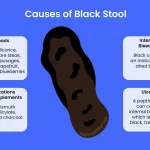Ever stared at a bewildering list of medical specialties and thought, “Which one actually helps me right now?” You’re not alone. Most of us have faced that moment of worry—whether it’s a persistent cough, an itchy rash, or a nagging knee pain—and then been hit with a wall of doctor titles that sound like a secret code.
This guide cuts through the jargon. In just a few minutes you’ll know which doctor type fits your situation, why it matters, and how to actually find that specialist without getting lost in endless online searches. Grab a coffee, relax, and let’s demystify the different types of doctors together.
Why It Matters
Benefits of Matching the Right Specialist
When you see the doctor who’s trained for your specific problem, you get faster, more accurate diagnoses and treatment plans that actually work. A specialist’s focused expertise means fewer unnecessary tests, lower out‑of‑pocket costs, and—most importantly—less time feeling sick.
Risks of Seeing the Wrong Doctor
Going to a doctor who isn’t equipped for your issue can delay care, lead to misdiagnoses, and even cause iatrogenic (treatment‑related) complications. Imagine walking into a dermatologist for chronic foot pain; you’ll likely be bounced to a podiatrist after an unproductive visit, wasting time and money.
Real‑World Example
Take Sarah, a busy mom who thought her recurring skin “spots” on her elbows were just eczema. After three visits to a general practitioner, she finally saw a dermatologist who diagnosed early‑stage psoriasis—saving her from years of ineffective creams and frustration. Stories like Sarah’s illustrate how essential it is to match symptoms with the right specialist.
Primary Care Docs
Primary care physicians (PCPs) are the frontline soldiers of our health system. They handle everyday issues, keep preventive care on track, and—crucially—refer you to the appropriate specialist when needed.
| Doctor Type | Typical Age Range | Core Services | When to See Them |
|---|---|---|---|
| Family Medicine Doctor | All ages | Preventive care, chronic disease management, minor procedures | First point of contact for any health concern |
| Internist (Internal Medicine) | Adults (18+) | Adult chronic & acute care, preventive screening | Complex adult health issues, coordination of multiple specialists |
| Pediatrician | Infants‑adolescents (0‑18) | Vaccinations, growth monitoring, developmental assessments | Any child health concern, routine well‑checks |
| Geriatrician | Older adults (65+) | Multi‑condition management, medication review, functional health | Age‑related health challenges, fall risk, cognitive changes |
Family Medicine Doctors
Think of family doctors as the “Swiss‑army knife” of medicine. They treat everything from a sore throat to hypertension, and they stay with you (and your family) through every life stage. Their broad training makes them excellent at spotting when a specialist is truly needed.
Internists
Internists zero in on adult health. They excel at untangling complex internal‑organ issues—like a heart‑failure patient with diabetes and kidney disease—ensuring you get coordinated, evidence‑based care.
Pediatricians
Children aren’t just “small adults.” Pediatricians understand the unique physiological and emotional needs of kids, from vaccination schedules to behavioral concerns. They also serve as a bridge to pediatric subspecialists when a child’s condition warrants deeper expertise.
Geriatricians
Aging brings a whole new set of health puzzles. Geriatricians specialize in poly‑pharmacy management, frailty assessment, and maintaining quality of life for seniors. Their expertise helps prevent hospital readmissions and keeps older adults thriving.
Major Specialties
Below is a snapshot of the most common medical specialties you’ll encounter. Each row lists what the doctor treats, why you’d be referred, and a quick tip for finding a qualified physician.
| Specialty | Core Conditions Treated | Typical Referral Reason | Finding Tip |
|---|---|---|---|
| Cardiology | Heart disease, arrhythmias, hypertension | Chest pain, irregular heartbeat, heart‑failure management | Search the Healthline directory of cardiologists |
| Dermatology | Acne, eczema, psoriasis, skin cancer | Persistent rash, suspicious mole, chronic skin disease | Check the American Academy of Dermatology’s “Find a Dermatologist” tool |
| Gastroenterology | IBS, ulcer disease, liver disorders | Chronic abdominal pain, blood in stool, unexplained weight loss | Look for board‑certified gastroenterologists through the ACG website |
| Neurology | Seizures, migraines, Parkinson’s, multiple sclerosis | Frequent headaches, numbness, memory changes | Ask your PCP for a neurologist affiliated with your health system |
| Orthopedics | Joint pain, fractures, sports injuries | Persistent joint swelling, limited range of motion, trauma | Search for orthopedic surgeons with a sports‑medicine fellowship |
| Psychiatry | Depression, anxiety, bipolar disorder, schizophrenia | Persistent mood changes, thoughts of self‑harm, severe insomnia | Use your insurance’s mental‑health provider directory |
| Endocrinology | Diabetes, thyroid disease, osteoporosis | Abnormal blood sugar, unexplained weight changes, hormone imbalances | Verify certification on the American Association of Clinical Endocrinology site |
| Pulmonology | Asthma, COPD, sleep apnea | Chronic cough, shortness of breath, recurring infections | Look for pulmonologists affiliated with a respiratory‑care center |
| ENT (Otolaryngology) | Sinusitis, hearing loss, tonsillitis | Persistent ear pain, chronic sinus issues, voice changes | Check the American Academy of Otolaryngology‑Head & Neck Surgery list |
| Urology | Kidney stones, prostate issues, urinary incontinence | Flank pain, difficulty urinating, recurrent infections | Find a urologist via the American Urological Association directory |
Cardiology
Heart health is the engine of our bodies. Cardiologists perform stress tests, echocardiograms, and, when needed, invasive procedures like angioplasty. If you’ve ever felt a racing heart after climbing stairs, it might be time for a cardiology check‑up.
Dermatology
Our skin is the body’s largest organ, and dermatologists are the specialists who keep it healthy. From childhood eczema to adult melanoma, they use everything from topical formulas to laser therapy.
Gastroenterology
Digestive woes can be elusive. Gastroenterologists employ endoscopies and imaging to investigate everything from acid reflux to liver disease. A simple “butterfly” feeling in your stomach may actually be a sign of a deeper issue.
Neurology
The brain and nerves are complex, and neurologists spend years mastering them. If migraines keep you down for days or you’ve noticed numbness in a limb, a neurologist can run nerve conduction studies and MRIs to get to the root cause.
Orthopedics
Whether you’re a weekend warrior or just tripped on a curb, orthopedic surgeons address bone, joint, and muscle problems. They provide everything from physical‑therapy referrals to joint‑replacement surgery.
Psychiatry
Mental health deserves the same respect as physical health. Psychiatrists can prescribe medication, offer psychotherapy, and coordinate care for co‑occurring disorders. If you feel stuck in a negative loop, a psychiatrist might be your next ally.
Endocrinology
Hormone imbalances affect everything from energy levels to mood. Endocrinologists manage diabetes, thyroid disorders, and metabolic bone disease, often using blood‑test panels and lifestyle plans.
Pulmonology
Breathing should be effortless. Pulmonologists diagnose asthma, COPD, and sleep‑apnea, often with spirometry and sleep studies. Persistent wheezing or nighttime shortness of breath? Consider a pulmonology consult.
ENT (Otolaryngology)
Ears, nose, and throat issues can feel miserable. ENT specialists treat chronic sinusitis, hearing loss, and voice disorders, sometimes using minimally invasive surgeries.
Urology
Urologists handle the urinary tract and male reproductive health. Kidney stones, prostate screening, and urinary incontinence are among the common concerns they address.
How to Find the Right Doctor
Assess Your Symptoms
Start with a symptom journal. Write down what you feel, when it started, and any triggers. This clarity helps you decide whether you need a PCP or a specialist right away.
Use Trusted Directories
Official sources like the AAMC’s specialty profiles list accredited specialties and subspecialties. State medical board websites also verify a physician’s license and any disciplinary actions.
Check Insurance Coverage
Even the best doctor is useless if your plan won’t cover them. Log into your insurer’s portal, filter for “in‑network,” and note any co‑pay requirements. Some plans require a primary‑care referral before you can see a specialist.
Read Reviews Wisely
Patient reviews can give insights, but look for patterns rather than isolated anecdotes. A steady theme of “long wait times” or “rushed appointments” matters more than a single one‑star rating.
Ask for Referrals
Never underestimate the power of a personal recommendation. Friends, family, or your PCP can point you toward doctors who are not only skilled but also compassionate.
Sample Referral Script
“Hi Dr. Smith, I’ve been dealing with persistent knee pain after my weekend hikes. Could you refer me to a sports‑medicine orthopedist who’s experienced with non‑surgical rehab?”
Quick Reference Guide
Use this table as a cheat‑sheet when you’re unsure who to call. Match your main symptom to the appropriate doctor type, and you’ll save time, money, and a lot of frustration.
| Symptom / Condition | Recommended Doctor Type | Reason for Referral | Typical Wait Time* |
|---|---|---|---|
| Persistent cough, wheeze | Pulmonologist | Specialized lung function tests, possible asthma or COPD diagnosis | 2–4 weeks |
| Unexplained skin rash | Dermatologist | Skin biopsy, targeted medication | 1–3 weeks |
| Knee pain after sports | Orthopedic surgeon (sports‑medicine) | Imaging, possible arthroscopy or rehab program | 2–6 weeks |
| High blood pressure that won’t settle | Internist or Cardiologist (if resistant) | Medication management, cardiovascular risk assessment | 1–2 weeks |
| Memory lapses, confusion | Neurologist | Cognitive testing, MRI, rule‑out dementia | 3–5 weeks |
| Frequent headaches | Neurologist or Headache specialist | Identify migraine triggers, possible preventive therapy | 2–4 weeks |
*Wait times vary by region, insurance network, and provider availability.
Wrapping It Up
Understanding the different types of doctors isn’t just trivia—it’s a practical skill that puts you in control of your health. By matching symptoms to the right specialist, you cut down on unnecessary visits, avoid costly missteps, and get the care you truly need. Remember: start with a primary‑care doctor, use reputable directories, check your insurance, and don’t be shy about asking for referrals.
Now that you have a clear map of medical specialties, which doctor do you think you’ll need to see next? Share your story in the comments, ask any lingering questions, or let us know which part of the guide helped you the most. Your health journey is personal, and we’re here to walk it with you—one specialist at a time.

























Leave a Reply
You must be logged in to post a comment.